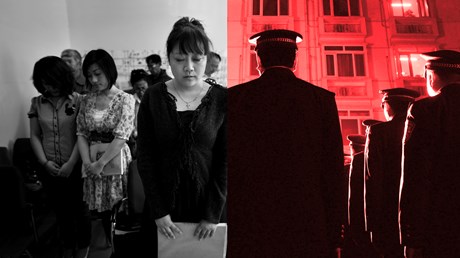As China deals with economic woes, religious restrictions, and mass exodus, ministries see an opportunity.

Christians in China have had a difficult several years. The Chinese government kicked missionaries out of the country, tightened restrictions on religion, and cut off access to the world with its aggressive “zero COVID” policies. After a growing discontentment prompted unprecedented protests last year, the government finally dropped its pandemic restrictions.
Solomon Li, an overseas ministry leader who has served the Chinese church for the past 30 years, finally had a chance to return to China this year for the first time since the pandemic began in 2020. (Li’s name has been changed due to security risks.)
He met with 150 pastors within one urban house church network and shared with CT about the new challenges and opportunities that Christians face in this post-pandemic era. The interview has been shortened and edited for clarity.
China’s “zero COVID” policy, which aimed to keep cases as close to zero as possible with strict lockdowns and mass testing, only ended last December. How did the pandemic impact the house church leaders that you met with?
In general, it became more difficult for them to hold Sunday services, but many of them still tried to meet in person as much as they could. It also made things more difficult for fellowships and house visitations. People feared that they were spreading germs by gathering together. These were some really tough years.
One reason these churches wanted to continue meeting offline is that they were concerned about intentional ecclesiology: What is the doctrine of the church? Can online or Zoom services be acceptable in the long term? Their answer, based on the Bible, was no. Online church is the exception to the rule. If we can go out shopping, then ...
from Christianity Today Magazine
Umn ministry


.gif)

.gif)
.gif)
